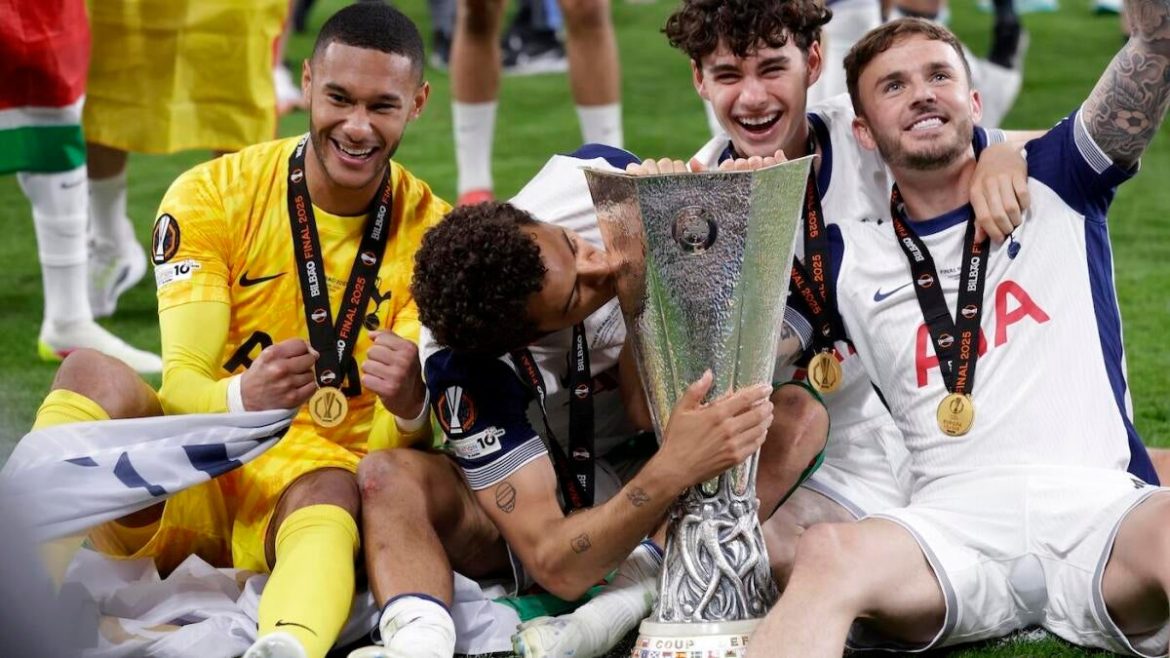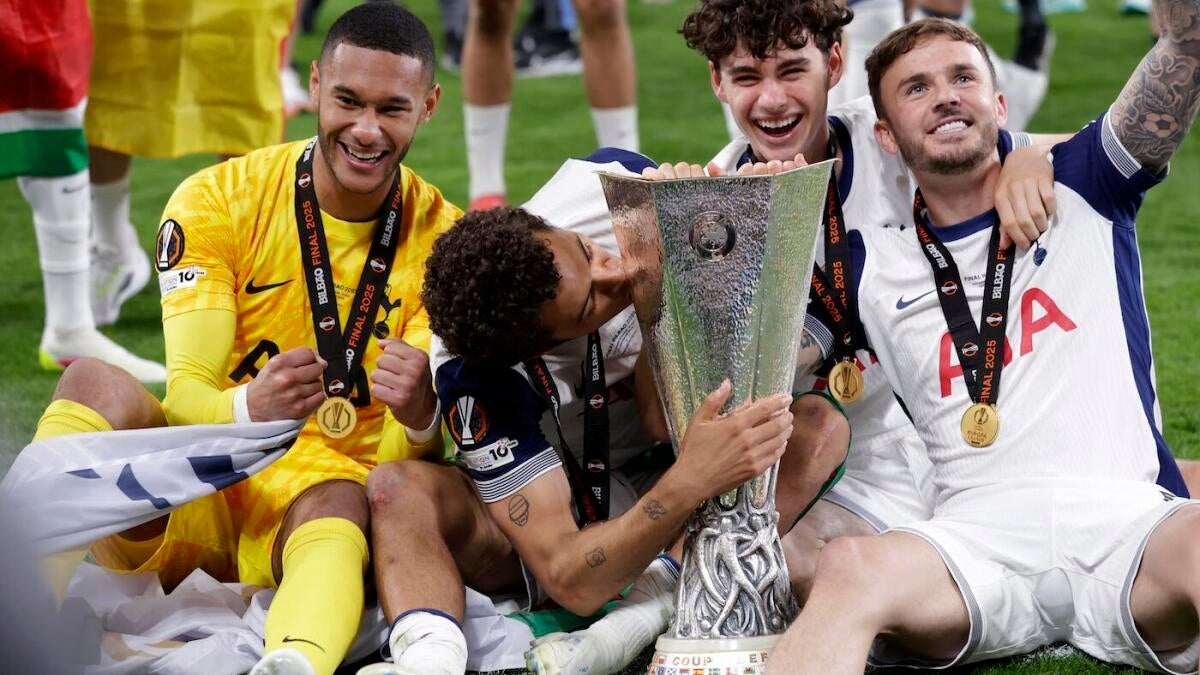Tottenham’s Europa League Triumph: Ange Postecoglou’s Strategic Masterstroke and Its Implications
Tottenham Hotspur’s 1-0 victory over Manchester United in the 2024-25 UEFA Europa League final marks a historic moment for the club, ending a 17-year trophy drought. Under the stewardship of manager Ange Postecoglou, Spurs not only claimed their first major silverware since 2008 but also secured a coveted place back in the Champions League. This report explores how Postecoglou’s tactical decisions, leadership, and resilience culminated in a gritty yet triumphant campaign that has vindicated his leadership amidst intense pressure.
—
Breaking the Drought: Context and Stakes at Bilbao
Tottenham approached the final in Bilbao with considerable weight on their shoulders. The club’s notoriously elusive silverware quest had persisted since their last major triumph in 2008. Their Premier League form was underwhelming throughout the season, finishing 17th with only 11 wins, five draws, and 21 defeats in 37 league games. This disparity made the Europa League final the sole opportunity for redemption, not only to clinch a trophy but also to restore the club’s European pedigree.
Ange Postecoglou, the Australian manager appointed with hopes to rebuild Spurs’ identity, faced intense scrutiny. Despite criticism for Spurs’ league performances, the Europa League offered a clean slate and a chance to validate his methods. The victory stands as a testament to his adaptability and focus on delivering silverware over style in crucial moments.
—
Tactical Evolution: From ‘Ange-ball’ to Pragmatic Resilience
Postecoglou initially gained recognition for his attacking “Ange-ball” philosophy—high-intensity, possession-based football emphasizing creativity and pressing. However, the Europa League final showcased a pragmatic evolution in his approach:
– Defensive Solidity: Tottenham spent almost the entire second half defending a slender 1-0 lead thanks to Brennan Johnson’s opportunistic goal in the 42nd minute. This was a deliberate tactical pivot from expansive attacking to compact, resilient defending, frustrating Manchester United’s attempts to break through.
– Strategic Flexibility: Contrary to Postecoglou’s prior insistence on tactical consistency, he demonstrated that adaptability was key when stakes were highest. Opting for a more conservative formation and defensive discipline underscored his willingness to “ditch” his trademark style in pursuit of victory.
– Efficiency Over Flair: Spurs had only three shots on target throughout the match but were effective when it counted. The team prioritized exploiting set-pieces and counter-attacks, highlighting a mature understanding of game management in knockout football.
—
Leadership Under Pressure: Postecoglou’s Vision and Resolve
Beyond tactics, Postecoglou’s leadership played a pivotal role in Spurs’ success:
– Maintaining Self-Belief: Despite speculation about his future and calls for his dismissal, Postecoglou persisted in his vision, emphasizing his status as a “winner” determined to build further on the club’s success.
– Promising Progress: The victory fulfilled his second-season promise to deliver a trophy, a significant benchmark at a club historically frustrating their supporters. This success could prove instrumental in securing his managerial tenure and silencing critics.
– Motivational Impact: His honest and spiky responses to media questions, particularly when addressing Manchester United or critics, reveal a manager fiercely protective of his team’s accomplishments. This attitude galvanized players and fans alike.
—
Key Players Rising to the Occasion
The final was a collective defensive effort highlighted by several standout performers:
– Brennan Johnson: His bundled goal proved decisive. His persistence inside the opposition box exhibited sharpness critical in tight finals.
– Micky van de Ven and Guglielmo Vicario: Defensive pillars who maintained discipline and composure under mounting pressure, enabling Spurs to preserve the clean sheet.
– Team Effort: Player ratings emphasized a team that sacrificed individual glory for collective success, the hallmark of disciplined tournament football.
—
Implications of the Victory: Champions League Return and Beyond
Winning the Europa League elevates Spurs back to UEFA’s premier competition—the Champions League—which promises:
– Financial Gain: Increased revenue from broadcasting, sponsorships, and matchday income.
– Reputation Rebuild: Reinforces Tottenham’s standing on the European stage, essential for attracting and retaining talented players.
– Catalyst for Stabilization: By ending the trophy drought, Spurs can stabilize their managerial situation and inspire belief within the squad and fanbase.
Yet, questions loom over Postecoglou’s future role, given ongoing Premier League struggles and board expectations.
—
Conclusion: A Historic Triumph Forged Through Adaptation and Grit
Tottenham Hotspur’s Europa League title under Ange Postecoglou is a compelling narrative of strategic pragmatism, resilience, and leadership under fire. Postecoglou’s ability to modify his attacking ideology in favor of defensive tenacity at a crucial juncture encapsulates adaptive management in modern football. This triumph not only breaks a 17-year silverware silence but also repositions Spurs for renewed European ambition.
This victory will be remembered as the moment when stubborn perseverance met astute tactical execution, with Postecoglou’s gamble paying off in the grandest fashion. The challenge ahead lies in sustaining this momentum and translating it into consistent success domestically and in Europe. For now, Spurs and their manager can bask in a joyous vindication of their Europa League conquest—a night that rekindled hope, pride, and glory at the heart of London’s north.





